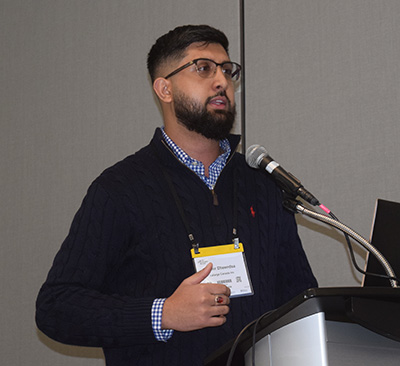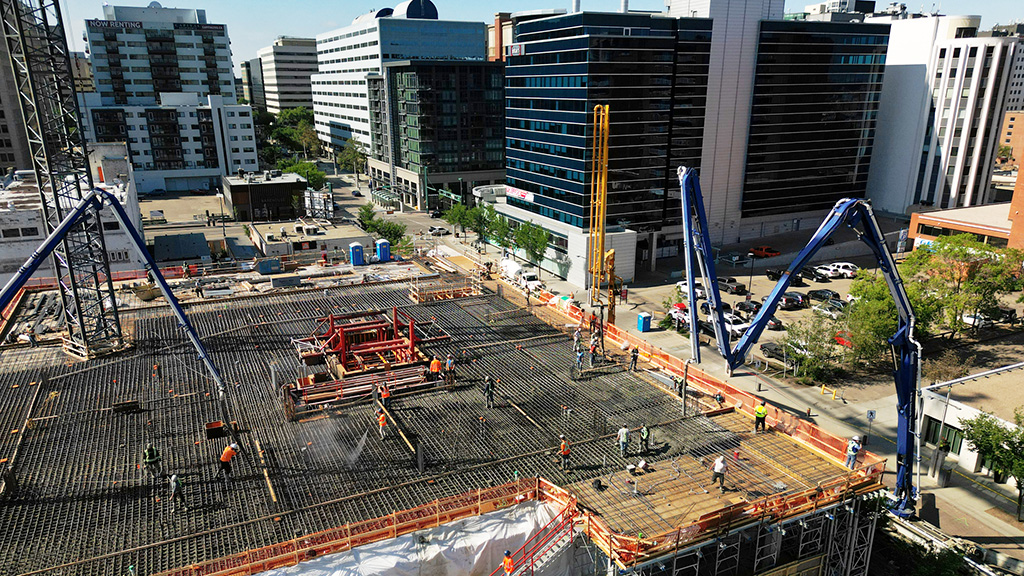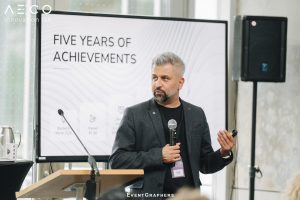The construction sector has been notoriously slow to adopt technological innovation, but experts say the industry is finding ways to embrace ChatGPT with lightning speed.
A year ago ChatGPT was barely on anyone’s radar but today, observed Buildings Show presenter Mahir Dheendsa during a panel discussion recently, there seems to be few limits to its growth.
From design, health and safety and data management to quality control, sustainability and even knowledge transfer between generations, Dheendsa said, its application to diverse construction workflows seems limited only by the imagination of the practitioners.
“More and more use cases and examples have been shown to us,” said Dheendsa. “It’s just improving our output, improving our efficiency.
“Those who don’t use these tools are going to be left behind.”

Dheendsa, a digital solutions architect with Lafarge Canada, told the Toronto Buildings Show audience his job involves developing digital solutions, particularly integrating AI into construction applications to improve project management, safety and sustainability.
Earlier this year, he said, with ChatGPT surging into public and commercial consciousness, he figured he could obtain a speaking position at the show by promising to talk about ChatGPT’s adoption in construction — and using the platform to help write his successful speaker’s proposal.
First, he addressed a typical myth involved with AI.
“There’s often a lot of fear and I find it alive in the construction industry, because as soon as I talk about AI, they’re like, ‘Oh, you’re trying to get rid of our jobs,’ ” said Dheendsa. “We’re not trying to remove people. We’re not replacing people. We’re instead making their jobs more efficient.”
ChatGPT was designed by OpenAI to generate human-like text responses in a conversational style.
It has been trained on diverse datasets and is capable of understanding and generating text and developing solutions.
Dheendsa described one of his early projects assigned “back in 2022,” to automate manual data entry — the construction sector has endless data that is still being inputted manually, he noted, including project-related data, test results, health and safety manuals, voluminous RFPs, even social media documents.
“Now fast forward to this year,” he said. “ChatGPT is released as a Large Language Model that’s already been trained on so much data…You’re now fine-tuning this existing, very powerful model to your specific business needs.
“It really helps boost your productivity. It can help you come up with ideas. It can give you cost savings, efficiency improvements.”
Other time-consuming tasks are easy low-hanging fruit for ChatGPT application, Dheendsa said. Document specs might be endless and a firm like Lafarge might only want to learn about the concrete component of the job.
“So you want to be able to use AI to highlight and identify, summarize these documents for you. That falls under document analysis, construction project risk analysis, and then generating really good proposals…It’s really good at document generation.”
For developers, Dheendsa said, ChatGPT can help with predictive analysis; for those working with data, “It’s really good at generating and interpreting charts”; for quality control duties, AI can help with handling and supporting test results, highlighting concerns and identifying optimization opportunities.
“It’s extremely smart. It knows what it’s looking at. It’s been trained on so much data,” said Dheendsa.
“In the construction industry, I’m sure you could think of multiple use cases here, right? We’re talking about maintenance. And inspections and training of your new hires.”
The next frontier, already underway, is rolling out plug-ins to use with ChatGPT. Dheensda said AutoCAD, for example, is not yet fully compatible with Chat GPT but that is surely coming. Photoshop AI is already in use editing images. Generative add-ons to existing software are being controlled by growing dashboards with new functionality all the time.
“I think the real value of generative AI is when it’s integrated with existing software,” said Dheensda.
Buildings Show co-presenter Behram Bashir, a data analyst with Aecon Group, addressed an audience question on data privacy with ChatGPT. One solution to keeping data in-house is for a firm to build its own Chat AI based on its own data, he said.
“Your data would stay internal and private, completely offline without interacting with the Internet itself,” said Bashir. “You have to train a model or you can import a model.”
Follow the author on Twitter @DonWall_DCN.











Recent Comments